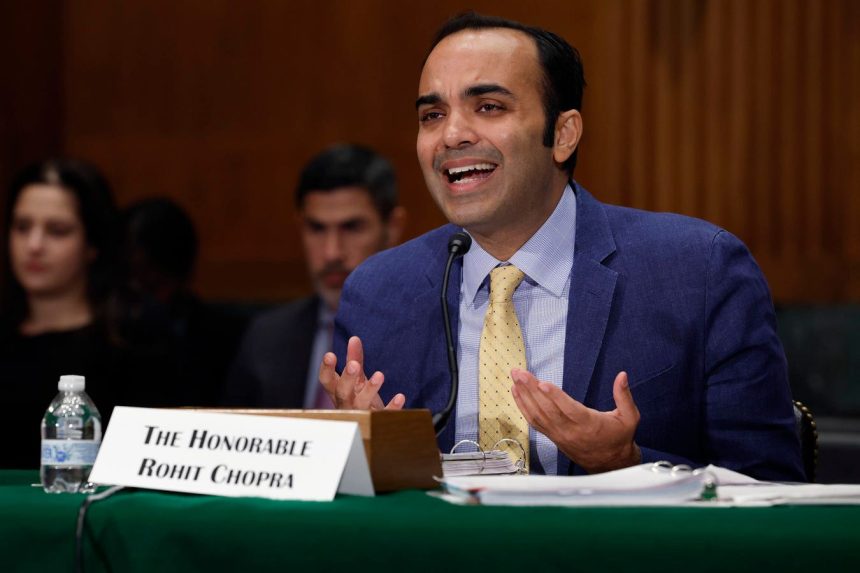The Consumer Financial Protection Bureau (CFPB) has initiated a lawsuit against major financial institutions, including J.P. Morgan, Bank of America, and Wells Fargo, owners of the popular digital payment system Zelle. The CFPB contends that these institutions bear responsibility for hundreds of millions of dollars lost by consumers due to scams facilitated by Zelle’s allegedly inadequate security measures. The Bureau’s proposed solution mandates that banks compensate victims of Zelle scams, effectively imposing a price control on the service. This action, however, is likely to have unintended consequences, potentially leading to the discontinuation of Zelle altogether, rather than the eradication of financial scams.
The CFPB’s approach, analogous to economist Gordon Tullock’s satirical suggestion of attaching spears to steering wheels to prevent car accidents, fails to address the underlying causes of financial fraud. By forcing banks to absorb the costs of scams, the CFPB disincentivizes innovation and investment in security measures. Banks, driven by profit motives, are unlikely to continue offering Zelle if they are held liable for all losses incurred through its use. This would eliminate a valuable tool for consumers and potentially drive illicit transactions toward less secure and less regulated channels.
Zelle was designed as a safer, faster, and cheaper alternative to traditional methods like checks, specifically aimed at mitigating bank account theft. While no system is foolproof, Zelle has incorporated various safeguards and prompts to guide users and minimize the risk of fraud. Banks invest significant resources in educating customers and providing support to prevent scams. The CFPB’s lawsuit, by shifting the entire burden of responsibility onto banks, undermines these efforts and discourages further investment in security enhancements.
The CFPB seems to overlook the fact that human error is an inevitable factor in any financial transaction. By holding banks accountable for these errors, the Bureau effectively raises the cost of innovation and disincentivizes the development of more secure payment systems. Banks will be less likely to invest in new technologies and procedures if they face the prospect of absorbing all losses resulting from user mistakes or criminal activity. This ultimately harms consumers by limiting their access to secure and convenient payment options.
The irony is that banks are already actively working to protect their customers from scams, implementing various measures to prevent fraud and assist victims. They are doing so without resorting to draconian measures like Tullock’s metaphorical spear. The CFPB’s lawsuit, however, threatens to create a situation where banks are forced to adopt extreme measures to protect themselves, potentially placing the entire burden of loss on customers.
The CFPB’s approach, rather than eliminating scams, is more likely to stifle innovation and limit consumer choice. By driving banks away from offering services like Zelle, the Bureau may inadvertently push financial transactions towards less secure and less regulated platforms. This ultimately harms consumers, leaving them more vulnerable to fraud and with fewer convenient and secure payment options. Instead of forcing banks to bear the full cost of scams, a more effective approach would be to encourage collaboration between financial institutions, regulators, and law enforcement to develop comprehensive strategies to combat fraud and educate consumers about online safety measures. The CFPB’s current strategy risks realizing Tullock’s satirical scenario, not in the literal sense, but by creating a chilling effect on innovation and ultimately harming the very consumers it aims to protect.



